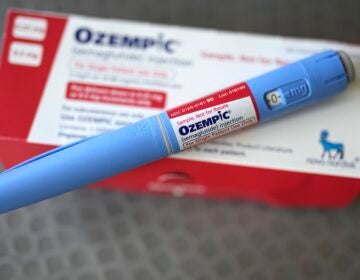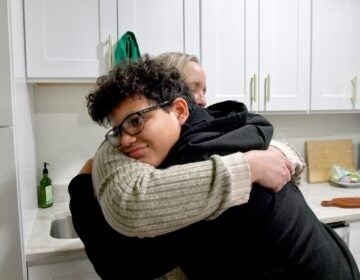New Jersey has stricter vaccination requirements than most other states
When Gov. Chris Christie spoke out about when children should receive vaccines, he wasn’t speaking for the consensus of medical opinion on the issue.
Christie said yesterday that while his children were vaccinated, parents must have a “measure of choice” regarding vaccines. A spokesman later added that “there is no question” that children should be vaccinated for measles, explaining that the governor is calling for “balance” on which vaccines states mandate. That would give the state and parents some degree of choice in the manner.
Christie made the comments in the midst of a national measles epidemic, which has affected 102 people in 14 states, with a concentration among unvaccinated children in California. There have been no reported cases in New Jersey, although there have been cases in New York and Pennsylvania. Infectious-disease experts are cautioning doctors in New Jersey to look for measles symptoms.
New Jersey has stricter vaccination requirements than most other states. For example it’s one of three states to mandate annual flu vaccines for children in daycare and one of 21 states to mandate hepatitis B vaccines for college students,according to data gathered by the Minnesota-based nonprofit Immunization Action Coalition.
Christie’s office didn’t respond yesterday to a question as to whether he disagrees with the state’s vaccine schedule.
After saying that he and his wife Mary Pat had their children vaccinated, Christie said: “It’s much more important, I think, what you think as a parent than what you think as a public official … But I also understand that parents need to have some measure of choice in things as well so that’s the balance that the government has to decide.”
When Christie was asked by a reporter if he was leaving people the option of not getting vaccinated, he said he didn’t say that, adding: “You have to have that balance in considering parental concerns, because no parent cares about anything more than they care about protecting their own child’s health,” adding that the “conversation” over different vaccines depends on the disease.
Assemblyman Herb Conaway Jr. (D-Burlington), a doctor, said Christie’s comments were irresponsible, endangering public health and disturbing.
“Those of us who are charged with promoting the public health need to stand with the scientific evidence and say to families: ‘You need to get your children vaccinated,’ ” Conaway said.
Dr. Margaret Fisher, medical director of the Unterberg Children’s Hospital at Monmouth Medical Center in Long Branch, said she was glad that Christie’s office clarified that he supports vaccines.
She noted that the vaccine schedule — which mandates up to 19 shots before a baby turns 19 months old — is based on the recommendations of the federal Advisory Committee on Immunization Practices, drawing on expertise from a wide range of medical specialists. The New Jersey Department of Health describes the dangers presented by each of the diseases on its site, “10 Reasons to Vaccinate Babies Before They Are Two.”
Some parents have linked signs of autism and other neurological disorders that appeared shortly after their infants received their shots to the vaccines. But medical research has found no such connections, and the medical consensus has said that vaccines are generally safe, with the benefits outweighing potential side-effects.
Fisher said children’s vulnerability to contagious diseases if they remain unvaccinated is a much bigger cause for concern. She added that the timing for each shot was carefully considered in designing the mandatory schedule.
Babies are born with protective antibodies from their mothers, but their effectiveness begins to fade within months, Fisher said. Over time, the effectiveness of these antibodies decreases, but they are strong enough to block any antibodies introduced through vaccines from taking effect.
For the measles shot, there is a period of time that lasts from 6 to 12 months of age, when babies can be vulnerable if exposed to measles because their maternal antibodies are no longer strong enough to block disease. However, during that time the maternal antibodies are still strong enough to prevent antibodies from a vaccine from taking effect, Fisher said. But then babies should get the shots between 12 months and 15 months of age after the last antibodies from the mother have completely faded, she explained.
Fisher said she would tell parents who believe that it’s in their child’s best interest to remain unvaccinated: “I clearly don’t know your child as well as you do, but I also know measles and I know we can’t predict from measles which child is going to die from measles or the one who is going to have brain damage.” Fisher commented that measles can cause brain damage in roughly one child in 1,000 who contracts it.
“Why would you take that chance?” she asked.
Conaway noted that vaccinations have a long track record of eliminating disease that once led to many thousands of deaths.
“If you don’t want to rid the world of polio, of smallpox, follow junk science,” Conaway said, adding that it shouldn’t come as a surprise that as the number of people denying their children vaccines climbs, “lo and behold, you’re going to get a lot more deaths and diseases which are preventable.”
Conaway said Christie was “feeding into an unfortunate misperception” that there is doubt within the medical community about the appropriateness of the mandated vaccine schedule.
“It’s my view that public officials who have a public health responsibility have a duty to adhere to the best science and here the science is clear,” Conaway said, noting that leaving children unvaccinated can not only endanger their own health, but also that of people who can’t receive vaccines for medical reasons, such as compromised immune systems or allergies to vaccines.
New Jersey’s vaccination rate for measles, mumps, and rubella is 95.6 percent for children younger than 3, which is tied with Rhode Island for fourth in the country behind New Hampshire, North Carolina, and Massachusetts.
But this masks pockets where vaccination rates are lower, noted Dr. Drew Harris, an advocate for public health in New Jersey and director of the master of health policy program at Thomas Jefferson University in Philadelphia. For example, overall vaccination rates for prekindergarten children are as low as 90 percent in Atlantic and Monmouth counties.
Harris said that now is a good time for public health workers to target education about the benefits of vaccines to areas where vaccination rates are the lowest.
“New Jersey’s vaccine-mandate law should be strictly enforced because it’s important to remember that vaccines protect children too young to be vaccinated and people with weakened immune systems,” Harris said. “No parent should have the freedom to put other people at risk.”
The number of people claiming religious exemptions from vaccinations has grown in recent years, rising from 0.4 percent of children in prekindergarten in the 2007-2008 school year to 2.5 percent this past school year. The percentage was as high as 6.5 percent in Hunterdon County.
Fisher said that if the measles outbreak spreads to New Jersey, it would be reasonable for school officials to bar children who haven’t been immunized from attending class, as some schools in California have done.
WHYY is your source for fact-based, in-depth journalism and information. As a nonprofit organization, we rely on financial support from readers like you. Please give today.




